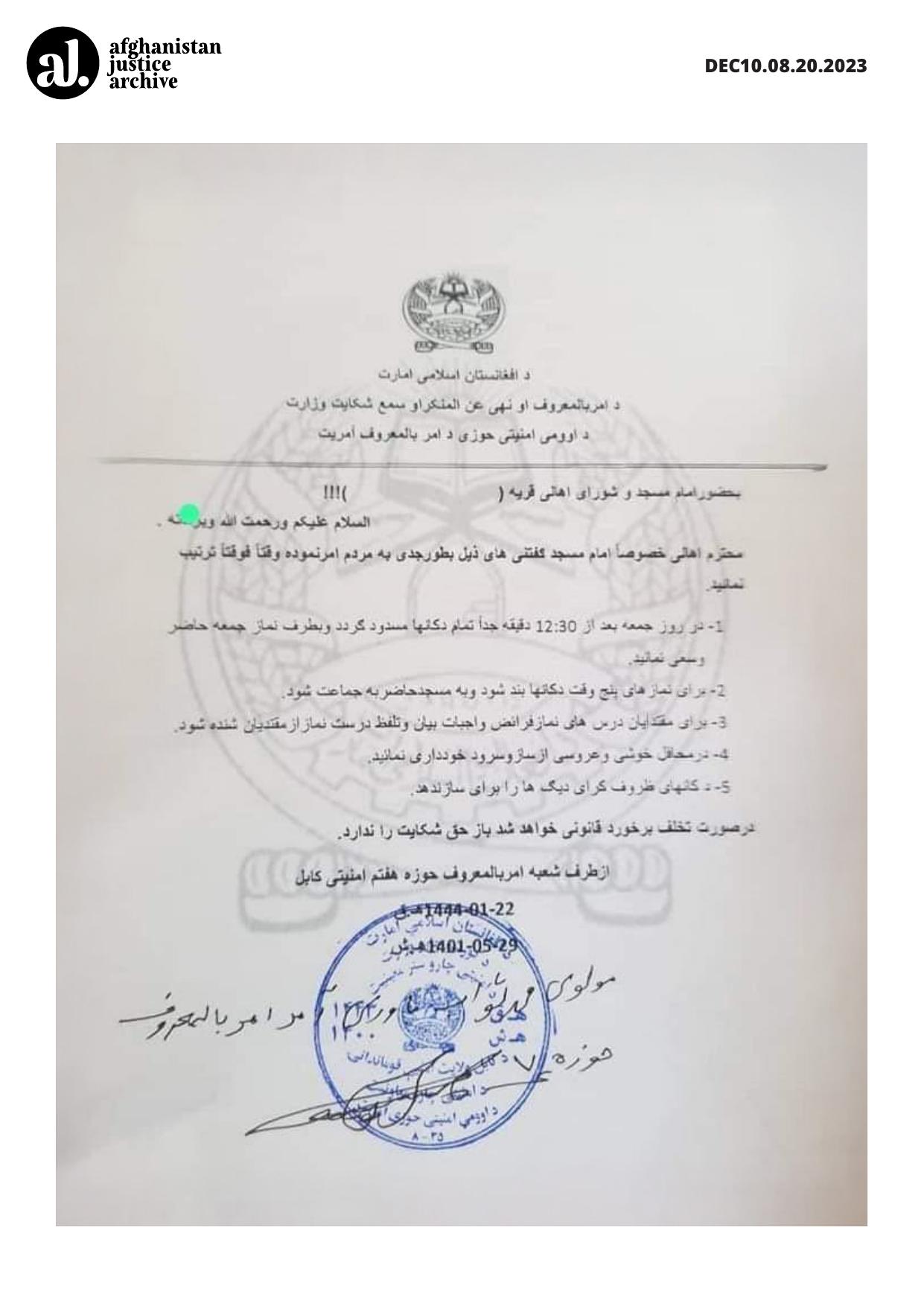Decree
Decree Translation
Date: 1444/01/22
From: Ministry for the Promotion of Virtue and Prevention of Vice, 7th Security District Command
In the presence of the Imam of the mosque and the village council
Subject: Enforcement of Islamic Conduct and Prayer Obligations
Peace be upon you, and the mercy and blessings of Allah.
Respected members of the community, especially the Imam of the mosque, the following instructions must be seriously conveyed to the people and regularly enforced:
On Fridays after 12:30 PM, all shops must be closed, and individuals must officially attend the Friday prayer.
-Shops must be closed for the five daily prayers, and individuals should attend the mosque for congregational prayers.
-Lessons on prayer, including obligatory and mandatory acts, should be taught to worshipers, and correct pronunciation should be ensured.
-Music should be avoided during celebration gatherings and weddings.
-Shops selling cooking utensils and cookware must refrain from using musical instruments.
-Any violations will be dealt with according to the law, and no complaints will be accepted.
Issued by: Department for the Promotion of Virtue and Prevention of Vice, 7th Security District of Kabul.
This directive illustrates the Taliban’s systematic enforcement of religious conformity and public morality through state authority and local community structures. By mandating mosque attendance, regulating business operations around prayer times, and banning music at both private events and commercial venues, the Taliban are using coercive religious policy to control daily life.
The explicit denial of the right to file complaints removes any possibility of legal redress and further entrenches a climate of fear. The involvement of imams and village councils in enforcing compliance demonstrates the Taliban’s strategy of embedding religious surveillance into community life—blurring the line between governance, religious authority, and law enforcement.
This directive forms part of a broader pattern of repression, especially targeting personal freedoms, cultural expression, and religious autonomy, with particularly adverse effects on women, minorities, and non-conforming individuals.
